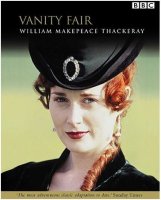The joy of women behaving badly…in literature
 Because I get so much great feedback from my writing critique groups, I’ve started looking at character development in a different way. It feels as if there’s a lot of pressure on authors to make our characters ‘likeable’ and to ensure that readers can relate to the protagonists we create.
Because I get so much great feedback from my writing critique groups, I’ve started looking at character development in a different way. It feels as if there’s a lot of pressure on authors to make our characters ‘likeable’ and to ensure that readers can relate to the protagonists we create.
While I agree a reader has to feel invested in a character to want to follow him or her through an entire book, I’m not as convinced that a reader should always feel that the character is likeable or believe that the character’s motivations are always correct.
Just like no villain is villainous all the time, no good person is virtuous all the time. Good people make bad decisions, they sometimes behave deplorably… and hopefully they learn from their mistakes. And then, of course, there’s just the pleasure readers feel in being able to dig deep down into the motivations of a truly appalling character and … dare I say it? … perhaps even cheer her on as she manipulates all those around her.
I suspect there’s more pressure for those writing women’s fiction to make their female protagonists likeable. Let’s face it, in fiction – as in life – men can simply get away with bad behavior. Women don’t often share that privilege.
 But this got me thinking about two books I love where the female protagonist is charmingly villainous start to finish: Becky Sharp in William Makepeace Thackeray’s Vanity Fair and Undine Spragg from Edith Wharton’s The Custom of the Country.
But this got me thinking about two books I love where the female protagonist is charmingly villainous start to finish: Becky Sharp in William Makepeace Thackeray’s Vanity Fair and Undine Spragg from Edith Wharton’s The Custom of the Country.
The female protagonists of these novels live in early 19th century Britain (Becky Sharp) and early 20th century New York (Undine Spragg). Both of these women are vicious social climbers: smart, attractive, selfish, mercenary, manipulative, utterly self-absorbed, amoral… and so wonderfully engaging from start to finish.
Both Becky and Undine manipulate the men in their lives and eventually lead them to ruin, they ignore their children unless they can shamelessly use them to their advantage, and they spend far beyond their means and don’t worry about the consequences. In the end, they never achieve the happiness they seek since their insatiable desire for wealth, position and the admiration of society are constantly stoked by those who have more.
 The subtitle of Thackeray’s book is A Novel Without a Hero and these two anti-heroine protagonists are textbook examples of thoroughly unlikeable female characters… who, nevertheless, keep you turning the pages.
The subtitle of Thackeray’s book is A Novel Without a Hero and these two anti-heroine protagonists are textbook examples of thoroughly unlikeable female characters… who, nevertheless, keep you turning the pages.
Thank goodness Thackeray and Wharton never got talked into toning down these classic villainesses. I suspect that more than a few modern-day readers realize just how well these stories would hold up if set in the present.. and how some aspects of society – including villainesses – never change.
Who are your favorite literary villainess-protagonists?
I agree that men can get away with worse behave than woman and still retain a likeability factor. Good post. You summarized it very well.
Good post, Kimberly! I can see what you are saying, though I’ve never cheered for the villain-like characters. Basically good characters who make a flawed decision and have to work things out and learn from their mistakes, yes. Love those types. I guess characters don’t have to be perfect (who is, right?) but I do like to identify with them, as you said.
Thought provoking post. I may have to check out the books you mentioned and see if I can get into the characters or if they drive my crazy.
Hi Chantel and Travis. Thanks for your comments. I think it must be hard to do – to create a really compelling female protagonist-villainess who drives the entire story. These are my favorite examples.
There’s been a lot of debate about whether Scarlett O’Hara was based on Becky Sharp’s character. Funny that these women get toned down for film versions and made nicer and more vulnerable (maybe more palatable?) for audiences… both in ‘Gone with the Wind’ and the Hollywood version of ‘Vanity Fair’. The BBC ‘Vanity Fair’, IMO, sticks closer to the novel.
[…] and why? I love so many characters, that it’s so hard to choose. I’ve already written about Women behaving badly in literature, and I tend to be drawn to villainess-protagonists like Becky Sharp form ‘Vanity Fair’ and […]
Great post, Kimberly! I agree. Think of Kate Chopin. She wrote stories about women who were unfaithful to their husbands and was ostracized for doing so. Her literary work became successful long after she was dead. But she was shunned during her life.